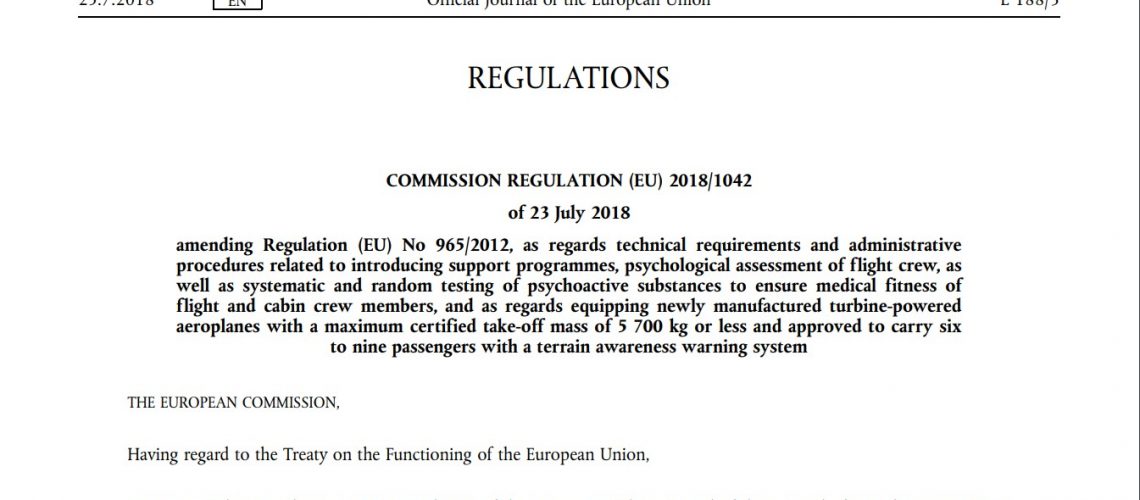Introduction
As France takes over the presidency of the Council of the European Union on 1 January 2022, it wants to show the other 26 member states that it is not late in implementing EU law. Air transport is no exception.
The French Parliament passed a law on 8 October 2021 implementing certain EU regulations with respect to transport, environment, economy and finance (the 2021 Law). As is often the case in France, the 2021 Law does not incorporate the changes directly; rather, it empowers the French government to act through ordinances that have to be passed within a certain period (six to eight months, depending on the subject matter). The notable changes brought in by the 2021 Law are set out below.
EU Regulation 2018/1042
Following the tragic loss of a Germanwings flight in the French Alps in 2015, EU Regulation 2018/1042 introduced procedures for the support, treatment and testing of crews to ensure their capacity to conduct flights. The 2021 Law enables the government to incorporate these procedures into French law.
Operating licences and air operator certificates
EU Regulation 2018/1139 (known in the EU Aviation Safety Agency’s jargon as the « Basic Regulation ») was adopted on 4 July 2018 and brought significant changes to the regulation of air safety within the European Union, particularly with respect to the operation of aircraft. The Basic Regulation introduced a distinction between operations that require the holding of an air operator certificate (as was the case before) and those that require a mere declaration to the authority.
The 2021 Law allows the government to make an ordinance to amend French law (including the Code of Transport and the Civil Aviation Code) to provide for these two types of operations.
Liability of air carriers
Article 8 of the 2021 Law amends article L.6421-4 of the Code of Transport, which governs the liability of air operators who do not hold an air operator certificate. The provision updates the reference to the applicable convention. The Convention for the Unification of Certain Rules Relating to International Carriage by Air (Montreal Convention 1999) replaces the Convention for the Unification of Certain Rules Relating to International Carriage by Air (Warsaw Convention 1929) and deals with the liability of air carriers performing free-of-charge flights.
Under article L.6421-4 of the Code of Transport, an air transporter carrying out a free-of-charge flight may only be held liable for an accident if it can be demonstrated that it committed a fault which caused the accident. The 2021 Law maintains such liability for fault regime but introduces a threshold of damages incurred, under which a simple fault needs to be evidenced to engage the air carrier’s liability and above which evidence of an inexcusable fault is required (pursuant to article L.6421-4). An inexcusable fault consists of a deliberate fault involving awareness of the likelihood of the damage and its reckless acceptance without good reason. Such threshold is determined by reference to article 21(1) of the Montreal Convention 1999 and amounts to approximately €161,500.
This change aligns the law with the most recent case law of the French Court of Cassation (for further details, please see our previous article « Court of Cassation rules on liability of pilot in connection with free of charge flight » on https://odise.com/en/court-of-cassation-rules-on-liability-of-pilot-in-connection-with-free-of-charge-flight/).


